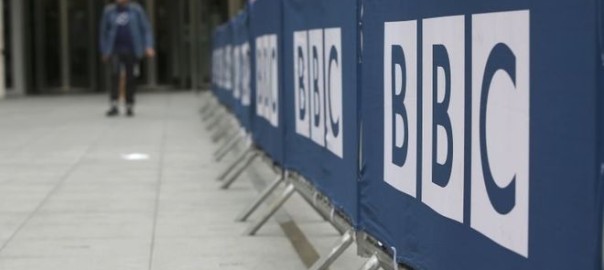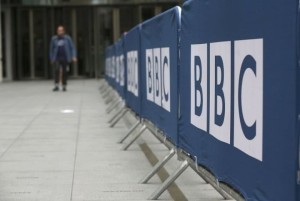From the many strands in the Government Green Paper on BBC Charter Renewal I’d like to tease out two. A failure to convince the UK that these strands are vital parts of the broadcasting web, and not mere loose ends, will cost us dear in Wales.
The first is BBC Purpose 4. The BBC has 6 public purposes and public remits. The Green Paper presents number 4 thus:
| 4. Representing the UK, its Nations, Regions and Communities | −−Represent the different nations, regions and communities to the rest of the UK.
−−Cater for the different nations, regions and communities of the UK. −−Bring people together for shared experiences. −−Encourage interest in, and conversation about local communities. −−Reflect the different religious and other beliefs in the UK. −−Provide output in minority languages. |
‘Represent the different nations… to the rest of the UK’ and ‘Cater for the nations‘ are the duties I want to concentrate on.
Mere days ago the BBC Audience Council Wales Annual review 2014 – 15 noted as a matter of concern that of all six purposes this fourth one was least successfully achieved for Wales in the last year.
This matters because of the insidious negative effect on the nation over time. That’s why the Council has set as one of its priorities for next year consideration of:
the breadth and volume of English language TV programmes produced in Wales for audiences in Wales, since the Council is regularly told by audience members about the importance they place on seeing themselves reflected in the BBC’s programming and content.
This is ‘catering for’. Wales is not being adequately catered for.
Why do the Welsh want to see their lives on TV? Can’t they be content (‘catered for’) by watching the lives of others on TV? Isn’t a farm a farm; a hospital a hospital, a housing estate a housing estate? Why does it matter where they are?
What matters is that Wales is being made invisible. Not deliberately. But by degrees.
Council recognises that serving the nation in a meaningful way through on-screen portrayal, and reflecting it to itself by exploring contemporary issues in news, factual, comedy and drama programmes, remains one of the biggest challenges facing BBC Wales.
Why do the people of Wales want to see what they look like, as it were? Do they really need to know what’s occurrin’? Can’t they just get on with doing whatever it is they do without wanting to see how their neighbours are faring?
For a nation to be in danger of losing sight of itself is peril indeed. Yet that is what the Council is drawing attention to when it states:
the DQF cuts have brought BBC Wales’ non-news TV provision closer to the cliff-edge
It certainly won’t be seen once it has gone over.
Regarding ‘Represent…to the rest of the UK’:
The Council remains concerned … at the lack of the portrayal of Wales on UK-wide BBC TV with 7 years having now passed since the last major portrayal of Wales in UK drama through Gavin and Stacey and Torchwood.
What’s wrong with not seeing Wales often enough on network TV?
What’s not seen is not understood and not valued.
That’s one strand. The second concerns Welsh language broadcasting and its relation to English language broadcasting. There are many languages in Wales but, for now, I want to look at Welsh and English.
Bearing ‘Represent ‘ and ‘Cater for’ in mind, let’s consider a passage from the Green Paper on Charter Renewal.
Nearly two thirds of minority language speakers in the UK say that the BBC supports their language. But while the BBC and licence fee funded services are clearly an important pillar for indigenous language communities there are also challenges: audience reach has been falling across some indigenous language services over the last few years, particularly in Wales.
And these services come at a cost; cost per hour of indigenous language radio content in Scotland and Wales is considerably higher than cost per hour for English speaking content which raises concerns about value for money.
Value for money in whose terms?
indigenous language users probably rate their radio content highly but how much will someone who doesn’t speak the language pay for it to be enjoyed by those who do?
There’s something about that phrase, And these services come at a cost which I can’t help hearing as implicitly addressed to those who don’t use these languages. It implies to them, ‘You won’t like this. It will hurt you.’ While to those who do, it has an admonishing tone, ‘Are you sure you’re worth it? Really?’
And so we touch on a very tender spot. If the logic of the market is applied too ruthlessly in this context then there is no room for the logic of the dinner table, where people of all sorts gather to share what they’ve got and where one might have to hold back from ‘all you can eat’ so that someone else can have what’s good for them.
I want to live in an enlightened democracy and not in a supermarket.
Whenever I read the work ‘challenge’ in a context of this type I sense a conflict over resources. Whoever cares about Welsh language broadcasting ought to consider that this is intimately woven into the representation of Wales in the English language.
‘saving S4C’ alone is too small a vision. Ensuring that the people of Wales, whatever language they speak, are not silenced and not made invisible, to themselves or anyone else ̶ that’s a broader, more fraternal aim.
A new mindset is needed where it becomes the norm that concern for the broadcasting needs of Welsh-speakers triggers a matching concern for those of Welsh citizens who speak English.
Otherwise there is little hope that the rest of the UK will understand why representing Wales on the network and at home is, from our point of view on the cliff-edge, a matter of cultural life and death.

